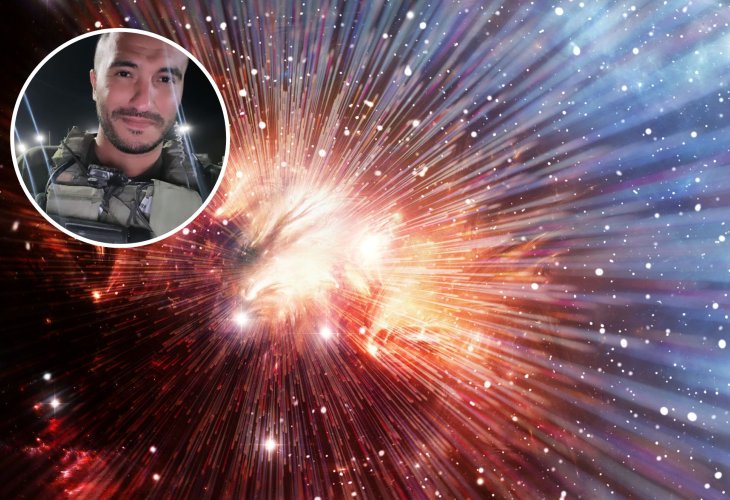Finding Light in Unexpected Places
Yakir Asraf reflects on current events in Israel and connects them to the weekly Torah portion, crafting one of the most moving posts we've seen online.

"Surprisingly, I woke up early this Shabbat and went to the synagogue. During the Torah reading, three points struck me.
These points align with the times and bring a sense of optimism.
Point One:
During the difficult period in Egypt, characterized by slavery and violence, we were oppressed.
Then Moses asks Hashem, 'Why have You mistreated this people?'
It felt like a question many of us are asking today.
As someone who doesn't know the entire Torah by heart, I feared Hashem's answer would be that we deserve punishment for our wrongdoings, but that wasn't His response.
Hashem answers Moses in a straightforward manner: 'Now you will see what I shall do to Pharaoh, for with a strong hand he shall send them away, and with a strong hand he shall drive them out of his land.' Or as some poets say, 'Every dog has its day.'
Point Two:
This Shabbat, Nasrallah dared a bit more and launched several rockets, making it clear that our focus is northwards. The Haftarah fittingly adapted itself to Shabbat, featuring Jeremiah's famous prophecy of doom:
'From the north, evil shall be unleashed upon all the inhabitants of the land.'
But after some unsettling verses, which, admittedly, I somewhat blocked out, comes the verse that ends the Haftarah: 'Thus said Hashem: I remember the devotion of your youth, the love of your betrothals, follow you after Me in the wilderness, in a land not sown.'
Hashem tells us, take a breath, my children. Even when trouble seems to come from the north or the south, I am with you. I remember how you followed Me blindly in the desert. I am with you in this difficulty as well, and I will bring you through it. If you've stayed with me until now, great job.
Let's get to the third point that somehow also sums up the idea:
A little introduction, in this portion, baby Moses is born. His little sister, all of six years old, prophesizes to her father Amram that this baby, surely a beacon of light, will become a great leader for Israel. Then, suddenly, Pharaoh decrees to cast all infants into the Nile, darkness. Amram teases young Miriam, asking: 'Where is your prophecy?'
Then, after the sweet baby is placed in the Nile, comes probably my favorite verse in the entire Torah: 'And his sister stood at a distance to see what would be done to him.' Miriam follows from afar after the tiny ark on the Nile, and all commentators question: you prophesized he would be the savior, so you're going to see if you were right?
Don't you have faith?
But, notice the end of the verse, 'to see what would be done to him' - Miriam was curious! Do you understand?
She was 100% sure he would bring light and redemption to Israel, but she was curious how Hashem would do it, and that, ladies and gentlemen, is the most powerful lesson we can apply to our private lives, especially in these times.
I wish us all to be curious about where our great light will come from, and it will come... in a big way."

